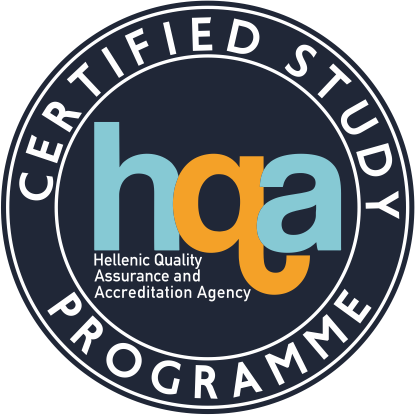Introduction to Pedagogy
Undergraduate level | 3rd semester | Compulsory Unit | ΓΕ1302
Credit Units ECTS: 5
Teaching Hours (Weekly): 3
Course Type: General Background
Prequisites: --
Teaching and Examination Language: Greek
For Erasmus students study course and exams are offered in English.

Course Material
During the course, the knowledge disseminated is focused on:
- Fundamental terms, modern applications, and key milestones in the history of Pedagogy.
- The basic steps of transition from theoretical thought to the foundation of the independent Science of Pedagogy.
- The clarifying definition of fundamental terms of Pedagogy: instruction, learning, schooling, teaching, education, training, further training.
- The fundamental research methods of the Science of Pedagogy.
- The means and the factors affecting children’s education.
- Branches of Pedagogy.
- Concept and types of learning outcomes.
- Concept of effective teaching and its fundamental cornerstones.
- School as a social agent for education and learning.
- School and values, family-child-school, educational relationship and interaction between teacher, student and parent.
- Modern issues related to Pedagogy and education such as literacy and illiteracy, in-school multicultural education, social exclusion and inclusive education, environmental education, lifelong learning.
Learning Outcomes
This subject examines the fundamental terms, notions, and principles of Pedagogy as well as the most important milestones of its evolution in the course of time. Its objectives include students’ familiarization with Pedagogy’s scientific terminology, research fields, scope and domains of interest On the completion of courses students are expected to:
- Know the features that differentiate traditional and modern pedagogy.
- Know domains of interest, research method sand branches of science of Pedagogy.
- Be able to define pedagogical terms, notions and principles applied to science of Pedagogy such as multicultural education, constructivism, unification of knowledge, tolerance on diversity etc.
- Be familiarized with fundamental means of education and main research methods on education.
- Know the elements of modern teacher’s professional profile and the phases of professional development.
- Know notions and kinds of learning outcomes and factors affecting in-school learning.
- Know specific branches of science of Pedagogy.
General Skills
The course aims at developing the following skills:
- Development of pedagogical consciousness and professional ethics
- Promotion of modern pedagogical values
- Development of social and pedagogical responsibility
- Development of individual and group working ability
- Development of free, reflective, and creative thinking
Learning and Teaching Techniques - Evaluation
Teaching Methods: Face to face, Support of learning through the use of asynchronous tele-education platform (e-class).
Use of ICT: Use of ICTs during teaching, use of asynchronous tele-education platform for distant education and communication with students, as well as contact through e-mail.
Course Organization:
| Activity | Semester Work Load |
|---|---|
| Lectures | 25 |
| Learning interaction during teaching | 20 |
| Individual/non-guided studying | 40 |
| Short individual activities for knowledge assimilation and feedback | 20 |
| Group work activities | 20 |
| Total | 125 |
Assessment Methods:
Student performance’s assessment is based on written examination, which provides students with the 100% of the final overall grade. It takes place after the completion of the course period and comprises:
- close ended questions
- multiple choice questions with short answer argumentation
- cloze
- term definition
- reflective thinking issue writing through the study of teaching scenarios
Moreover, students are provided with the opportunity to voluntarily write an essay based on the study and comprehensive rendering of the content of literature articles about a specific issue on education and pedagogy. The essay provides the 20% of final overall grade. Main criteria for the assessment of the written essay are:
- Educational correctness, scientific substantiation of the answers.
- Ability to use correctly concepts, notions, terms that have been studied and analyzed during the course.
- Reflective and composing ability as regards studying and use of sources and material provided.
- Innovativeness and creativity of educational and teaching proposals.
- Expressiveness, clarity and comprehensiveness of the answers.
- Thought organization, effective structure of the written essay.
- Morphological features of a written essay.
The abovementioned criteria are described to the students during the first teacher-student meeting, and are displayed in the e-class website throughout the semester.
Suggested Bibliography
- Χατζηδήμου, Δ. (2015). Εισαγωγή στην Παιδαγωγική Επιστήμη. Θεσσαλονίκη: Αφοί Κυριακίδη.
- Πυργιωτάκης, Ε.Ι. (2011). Εισαγωγή στην Παιδαγωγική Επιστήμη. Αθήνα: Πεδίο.
- Ξωχέλλης, Δ. Π. (2015). Σχολική Παιδαγωγική. Θεσσαλονίκη: Αφοί Κυριακίδη.
Related Journals
- Improving Schools
- Educational Studies
- Teaching and Teacher Education
- School Effectiveness and School Improvement




